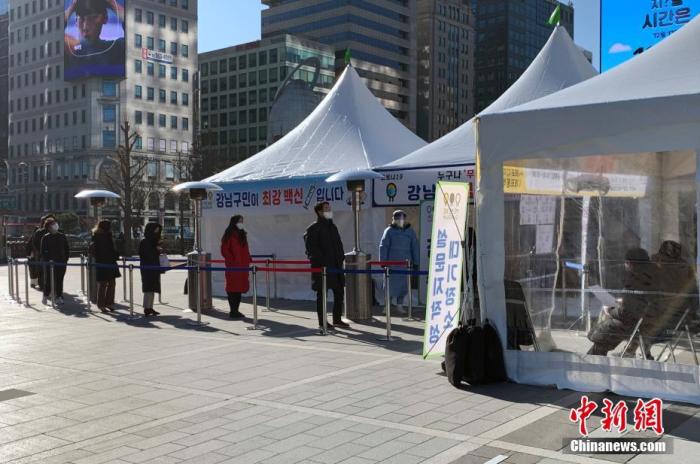China News Service, Seoul, January 8th (Reporter Zeng Nai) Starting from the 8th, all foreigners arriving in Korea by flight must submit a certificate of negative nucleic acid test for the new coronavirus within 72 hours before they can enter Korea.
According to a report from the Korean Central Anti-epidemic Countermeasures Headquarters on the 8th, in the past 24 hours, 674 new cases have been confirmed, and a total of 67358 cases have been confirmed.
The number of single-day cases in South Korea was less than 1,000 for 4 consecutive days.
The South Korean epidemic prevention department said that if the speed of transmission can be controlled, confirmed cases are expected to continue to decline.
On December 17, 2020, local time, South Korea’s metropolitan area expanded the scope of virus testing and added 150 temporary screening stations in subway stations and other places.
Photo by China News Agency reporter Zeng Nai
To prevent the spread of the mutant virus, South Korea has suspended flights with the United Kingdom.
Since January 8, South Korea has implemented new regulations, requiring foreigners arriving in South Korea by plane to submit a negative certificate of nucleic acid test within 72 hours before they can enter the country. Those who enter from the UK and South Africa must submit a negative certificate regardless of nationality.
In addition, starting from January 15, foreigners entering the country by boat must also submit a negative certificate.
The Chinese Embassy in South Korea issued a reminder that the South Korean side requires that the negative nucleic acid test certificate must be in Korean or English in principle, and the Chinese version must provide Korean and English translations and translation confirmation materials, including the translation notarization of the notary office, or the Korean presence in China Translation confirmation from the embassy or consulate.
South Korea’s Central Anti-epidemic Response Headquarters stated that this move is to prevent the mutated new crown virus from entering South Korea from abroad.
Statistics show that as of the 7th, a total of 15 cases of mutant strains have been discovered in South Korea.
(Finish)

